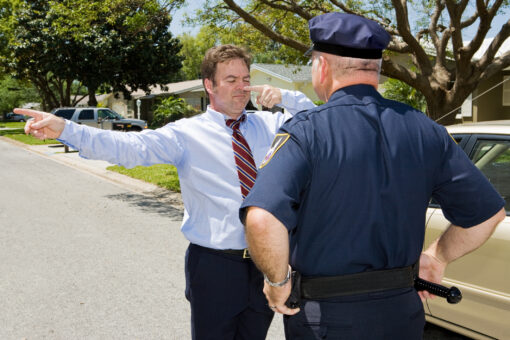
This may not be the case, it appears. Field sobriety testing guidelines have been made available to the public by the National Highway Transportation Safety Administration (NHTSA). These examinations are utilized all around the nation, including in California. Keep reading to find out more about the tests and how accurate they are. Then contact Chambers Law Firm at 714-760-4088 for a consutlation if you need to speak to a DUI attorney in California.
There are three tests that are deemed the most reliable
The NHTSA claims that the horizontal gaze nystagmus test (HGN), the walk and turn test (WAT), and the one leg stand test are the three tests most reliable for identifying intoxicated drivers (OLS). To perform the HGN, a driver is instructed to follow a stimulus with their eyes to the left and right. This is done to see if their eyes begin to twitch uncontrollably after reaching a particular angle.
The WAT exam involves asking a driver to take a certain number of heel-to-toe steps on a real or hypothetical line, pivot, and then take those same steps back. Last but not least, the OLS test requires the driver to lift their foot approximately six inches off the ground, remain motionless, and count out loud from 1001 to 10030 while gazing down at their foot. The HGN test, WAT test, and OLS test, according to the NHTSA, are 88%, 79%, and 83% respectively, accurate. However, there is a catch.
These tests are not uniformly reliable
These tests are only reliable IF three conditions are satisfied, as an Orange County DUI defense attorney may explain. First, the assessments must be correctly conducted in a standardized way. Second, the results of the exams must be evaluated using uniform cues. Third, the driver’s performance must be evaluated using a set of uniform standards. The validity of a field sobriety test is jeopardized if any of these elements fall short of these principles, making the tests less accurate.
We can fight to have results of field sobriety tests excluded from your DUI case
Field sobriety test findings are frequently not as reliable as the NHTSA claims, therefore an experienced DUI defense attorney in Orange County can frequently contest them. But more significantly, there are several possible causes for a false positive on a field sobriety test.
For instance, a person may struggle to complete the examination due to a physical or mental health issue. Similar to this, the driver might be donning attire that makes it difficult for them to take the exam, like high-heeled shoes. The outcomes may also be affected if an officer does the tests incorrectly, such as by moving around, failing to timing them properly, or performing them under unfavorable circumstances.
Your field sobriety tests can be thoroughly examined by an experienced Orange County DUI defense attorney, who can then present a compelling case for why they are invalid.
You are not required to take a field sobriety test
More crucially, California law does not require you to submit to field sobriety tests. Field sobriety tests are typically not given by the police to demonstrate that you are not operating a vehicle while intoxicated. They’re doing it so they can collect additional proof of your intoxication. These tests are not required of you.
If you are stopped for a DUI, politely decline to accept them and ask for your Orange County DUI defense attorney. Then contact Chambers Law Firm at 714-760-4088 for a consultation.




